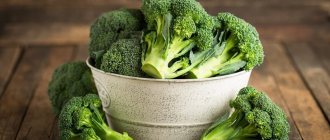Is it possible to eat lemon while breastfeeding?
The use of lemons during lactation is allowed. Gynecologists and pediatricians say that this fruit does not pose a danger to the child . However, this statement is true only in the case of moderation of consumption.
If you add a few slices of the fruit to tea or zest to a pie, this is unlikely to have a negative impact on the child. But lemon should be introduced into the diet very carefully, monitoring the baby’s reaction. At first, it is enough to add just a few drops of lemon juice to your tea.
Citrus in a baby's diet
Lemon should not be given to a newborn baby. This fruit is contraindicated for children under 6 months due to the presence of fruit acid in it. Only a doctor can determine exactly from how many months a child should be given a fetus.
The sour taste of the fruit will be unpleasant for the baby. A great danger lies in the difficulties with digestion of citric acid by a fragile little organism. A common reaction to citrus fruits is the appearance of a rash.
The optimal period for introducing lemon into a child’s diet is 8-10 months. This is the age when babies are able to distinguish the taste of food. Some parents try giving water with lemon juice as early as 6 months.
Start with a small piece and monitor the reaction for 2 days. During this period, also refrain from introducing new products. Sometimes the first dose is fraught with the appearance of diaper rash or a rash near the mouth.
Children who are predisposed to allergic reactions should absolutely not be given lemon until they are one year old.
You can safely give a 2-year-old child lemon slices with sugar. In this case, you need to monitor whether redness appears on the face. Children's consumption of lemon should be moderate, as excess citric acid can harm the child's digestive system.
The benefits of lemon for nursing mothers
It is important for a woman to eat right while breastfeeding. Her diet should definitely include fresh fruits, which contain many vitamins. The beneficial components of lemon include the following:
- Vitamin A – required for normal functioning of the immune system, dermis, and eyes.
- Vitamin C – strengthens the immune system, protects against infections and helps cope with emerging diseases.
- B vitamins – normalize metabolic processes.
- Vitamin P – helps strengthen blood vessels and increases their elasticity.
- Pectin facilitates digestion and has a beneficial effect on the functions of the stomach and intestines.
Citrus fruits are good for the development of the child’s immune system and reduce the threat of infections.
Lemon and lactation
Citrus fruits are known allergens, which is why some doctors strongly recommend that women avoid drinking lemon while breastfeeding. This is more of a safety precaution than a rule. Many women who consumed lemons during pregnancy and lactation did not notice any allergic reaction in their babies.
It is important to understand that allergies are individual in nature. During breastfeeding, unpleasant consequences in the form of a rash on the body and loose stools can be caused by simple and seemingly safe foods.
Harm of lemon
The harmful properties of citrus are due to its effect on the newborn. This is an exotic fruit that can cause unwanted reactions in a baby:
- skin rash;
- itching sensation;
- bowel dysfunction;
- child's anxiety;
- flatulence;
- constant regurgitation - observed in children under 3 months.
The risk group includes babies in the first month of life. Their digestive organs are not fully formed, so they react to any changes in the diet of a nursing mother.
Subsequently, the situation normalizes and the body adapts to new conditions. From 3-6 months, the risk of allergies decreases significantly.
Of all the citrus fruits, lemon is the most allergenic.
How is it useful?
Lemon is an exotic fruit widely known for its beneficial properties. It has a high content of vitamins A, B, P, E, C and minerals such as iron, magnesium, zinc, calcium, phosphorus, as well as natural plant antioxidants. The listed set of nutrients provides the benefits of these citrus fruits for nursing mothers and babies.
For woman:
- vitamin C improves immunity;
- lemons act as a prophylactic against acute respiratory viral infections and acute respiratory infections;
- have anti-inflammatory and antiseptic effects, which helps cope with the symptoms of colds;
- successfully cope with sore throat - gargling with lemon water is recommended for sore throat;
- due to the high concentration of magnesium and zinc, they normalize heart function;
- the bioflavonoid rutin contained in lemons improves the elasticity of capillaries and reduces the risk of varicose veins;
- remove toxins and promote weight loss;
- lemon juice successfully replaces salt and spices, which are prohibited for consumption during breastfeeding;
- fruits replenish calcium reserves in the body, which is so necessary for the female body during breastfeeding;
- improve bowel function, preventing constipation;
- the diuretic effect of these citrus fruits helps to avoid swelling;
- improve skin structure, refresh and smooth, get rid of acne;
- warm tea with lemon promotes milk flow;
- drinks with added citrus cleanse the blood and breast milk from infections during illness.
For a baby:
- contribute to the formation of the child’s immunity;
- participate in the prevention of colds;
- saturate the body with minerals;
- improve digestion, relieve gas, colic and constipation.
How to eat lemon while breastfeeding
To reduce the risk of negative consequences, you should follow these rules:
- The product should be introduced into the diet no earlier than 3 months of the baby’s life. If a child is prone to allergies, this should be done no earlier than six months or even 1 year.
- Lemon should be introduced separately from other new products. This will help to accurately determine the child's reaction.
- The first portion should be small. This can be water or tea with lemon, to which only 1 slice of fruit is added.
- After consuming the product, you should carefully monitor your baby’s reaction. It is negative if the stool remains within normal limits and there are no skin rashes. You need to observe for at least a day.
- If a rash, itching or diarrhea occurs, the product should be excluded. It is allowed to reintroduce it into the diet only after a month.
Can a nursing mother of a newborn drink lemon tea and what are its benefits?
Many people love hot lemon tea. This wonderful infusion tastes great, helps you feel warm, and gives you energy. Adding lemon further increases its usefulness, turning it into an anti-cold remedy.
However, with all the variety of beneficial properties, lemon tea can also cause some effects that are undesirable during breastfeeding. What is the opinion of pediatricians on this matter?
In fact, lemon tea is a representative of the most common group of foods and drinks - allowed during lactation, provided that the child does not have a negative reaction. It has many useful qualities, but they are all nullified if the baby has allergies or digestive problems.
That is why, before fully drinking lemon tea, a nursing mother must carry out the procedure for introducing a new product or drink. Only after this is the aromatic infusion included in their regular menu.
It is worth noting that experts strongly recommend drinking tea with lemon during lactation. This variation of the drink has so many beneficial properties that it is even difficult to list them all. Here are just the main ones.
- The unique thing about lemon tea is that it is an excellent cleanser. This infusion effectively removes toxic substances from the body of mother and child. They are known to often cause serious illnesses.
- For colds, there is no more effective and safe remedy for a nursing mother than lemon tea. This drink relieves the main symptoms of the disease and also strengthens the immune system. As a result, the body fights the disease more actively and recovers faster.
- It is known that many women experience extreme stress after childbirth. In such a situation, natural sedatives are simply necessary and tea with lemon is just that. Regular consumption of this drink eliminates general anxiety and also eliminates the main symptoms of fatigue.
- Lemon tea is rich in flavonoids - substances that the body of a woman and child need for a healthy circulatory system. They increase the elasticity of blood vessels and also reduce cholesterol levels in the blood. As a result, the risk of thrombosis is reduced.
Lemon contains substances that have antiseptic properties. All of them help the body better cope with all kinds of infections, and also eliminate inflammation.
- The citric acid contained in the fruit can be beneficial for the digestive system of a nursing woman. It helps the stomach cope with its task better. In addition, this acid will also help those mothers who suffer from urolithiasis. It will gradually dissolve deposits, which will facilitate their easy removal.
- Tea in its pure form usually prevents the body from absorbing iron, but in combination with lemon the opposite effect is achieved. Since this microelement is directly related to the process of hematopoiesis, normal lactation is impossible without it. As a result, we can say that drinking tea with lemon indirectly helps milk production.
- Lemon contains a significant amount of vitamin C. This substance is known for its strong antioxidant properties. This means that it promotes cell renewal, improves their functioning and fights free radicals. In addition, vitamin C significantly strengthens the immunity of mother and baby.
Tea with lemon while breastfeeding
When breastfeeding, weak tea with lemon can be introduced into the diet 1.5 months after birth. For the first time, you should drink no more than half a glass of the drink and evaluate the child’s reaction.
If there are no changes, you can increase the amount to 1 cup. If an allergy occurs, the introduction of lemon tea should be postponed for another month.
You can eat lemon during lactation, but you should do it very carefully. To avoid negative consequences for the baby, it is worth controlling his reaction. If negative symptoms appear, the introduction of citrus fruit into the diet should be postponed.
X
Available contraindications
We tried to cover all aspects of the question of whether lemon is possible during breastfeeding. But the arguments will not be complete without mentioning the existing contraindications.
Lemon is not recommended for women suffering from diseases of the gastrointestinal tract or problems with the pancreas. It is worth refusing it in case of an individual allergic reaction or intolerance. Breastfeeding women should not use it as a product on its own - it is better to add a small amount to tea, water, and baked goods. The point is the aggressiveness of lemon juice and its negative effect on tooth enamel, which a young mother with a weakened body certainly does not need. In other cases, no special obstacles are observed.
A nursing woman should clearly understand that any product from her diet will pass into breast milk and, accordingly, enter the baby’s body. That is why it is necessary to be extremely careful and careful when consuming foods that can cause an allergic reaction.
Restrictions and contraindications
The benefits of natural lemon juice are to increase immune strength, saturate with vitamin C, cleanse the mother’s liver, and remove toxins from her body.
Contraindications to the use of lemon are:
- in allergies in mother and child; Reduces the risk of a reaction by peeling lemons; If, however, the allergy remains, you should completely avoid lemon;
- In some cases, the baby develops diarrhea, which may be caused by fresh citrus juice drunk by the mother. If the child’s fragile digestion cannot cope with it, lemon must be removed from the mother’s diet.
On the other hand, fresh juice improves intestinal motility in a woman and her baby. But sometimes unexpected complications arise in newborn children when the mother consumes lemon, so the mother should carefully monitor the baby’s well-being while using fresh lemon juice in the diet.
Possible harm
Some diseases prohibit a woman from eating fresh lemons, regardless of whether she is breastfeeding or not. This happens in cases where the mother has a history of diagnoses such as gastritis, colitis, pancreatitis, or ulcers. With such diseases, drinking lemon causes digestive problems. The sharp acid of the juice aggravates diseases associated with digestion, heartburn appears - a sure sign of the onset of an exacerbation of the disease. In this case, the woman should completely abandon lemons in her diet.










